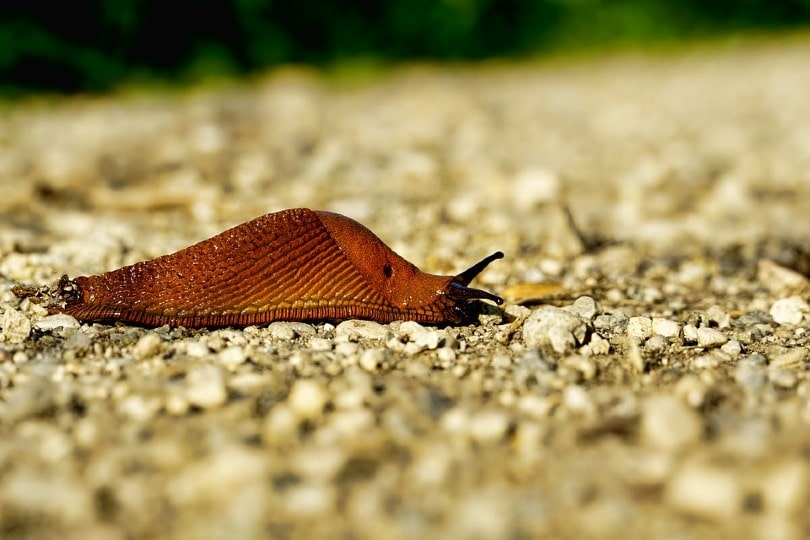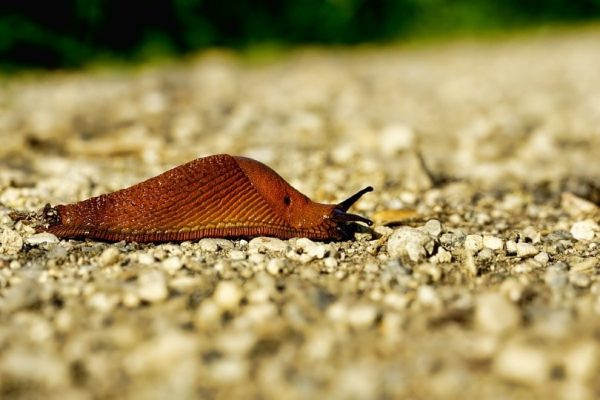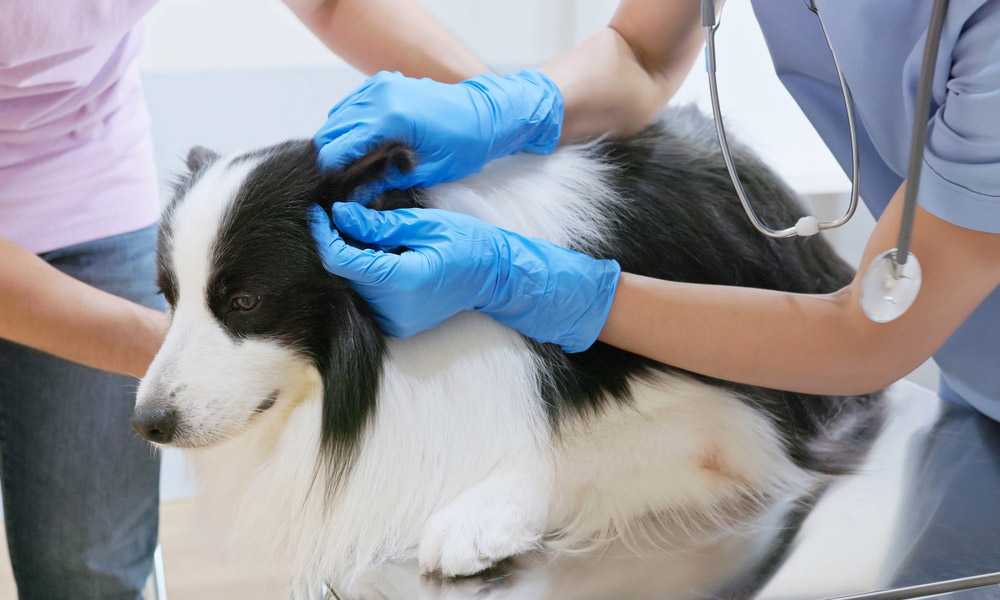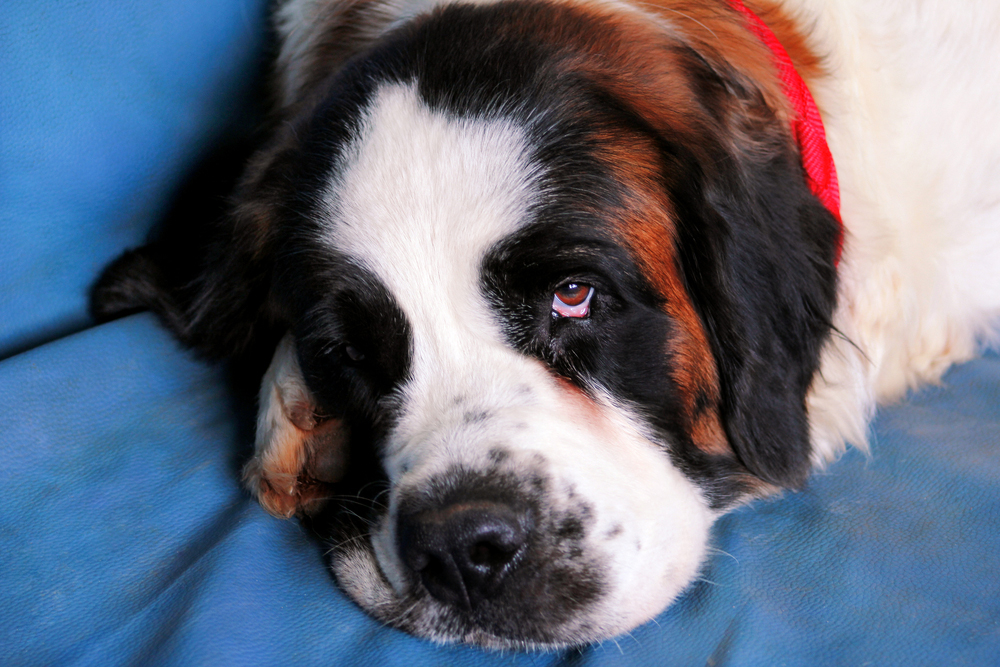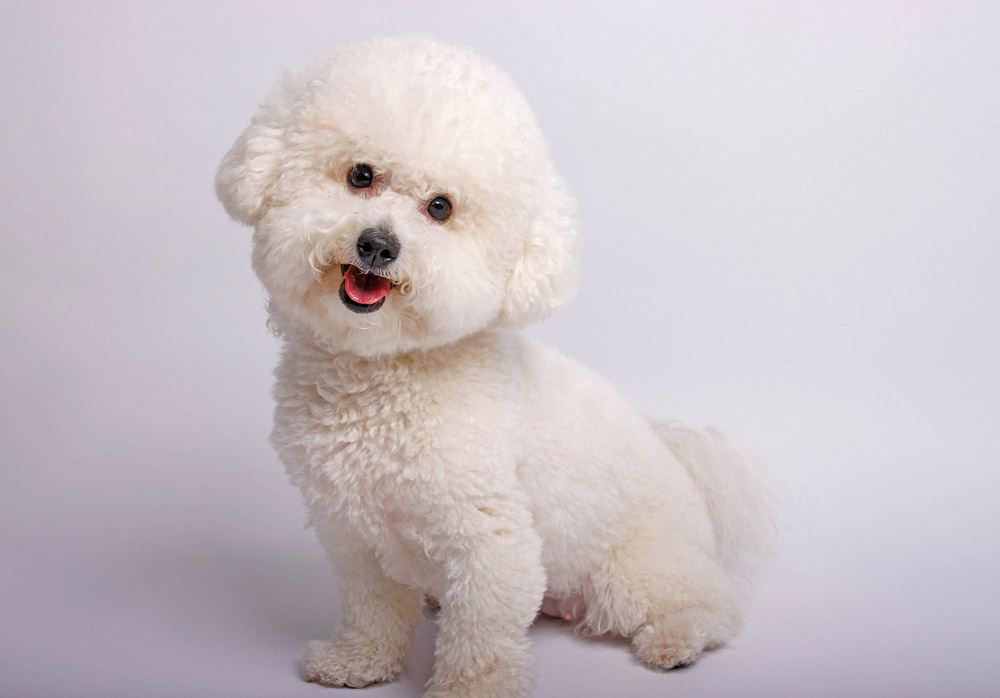Click to Skip Ahead
Snails and slugs love plants because they feed on them. Dogs are curious animals that like to stick their noses in grass, leaves, and puddles, which means they are exposed to the dangers lurking in those places.
Slugs, snails, and frogs can be vectors (intermediate hosts) for dangerous parasites, including lungworms, which can lead to severe health problems in dogs. These parasites can enter the body when dogs eat these intermediate hosts. Dogs can also get infected if they lick slug or snail mucus.
So, if you see your dog with a slug, snail, or frog, make sure they do not swallow them or lick their mucus. Slugs may also contain metaldehyde, a toxic substance found in slug and snail baits, so if your dog does eat a slug, you should take them to the vet, as there is a risk that they may get poisoned.
What Are Slugs?
Slugs, or snails without shells, are yellowish-white to reddish-brown gastropod mollusks with a 40–60-mm-long body. They are found mainly in forests, plains, orchards, or gardens (especially vegetable gardens), preferring wet places. Their bodies are covered with a milky mucus that protects them from predators.
Most slugs feed on plants, but there are species that can eat both plants and animals (30%) or only meat (10%).1 However, most prefer to eat rotting materials, including pet feces.
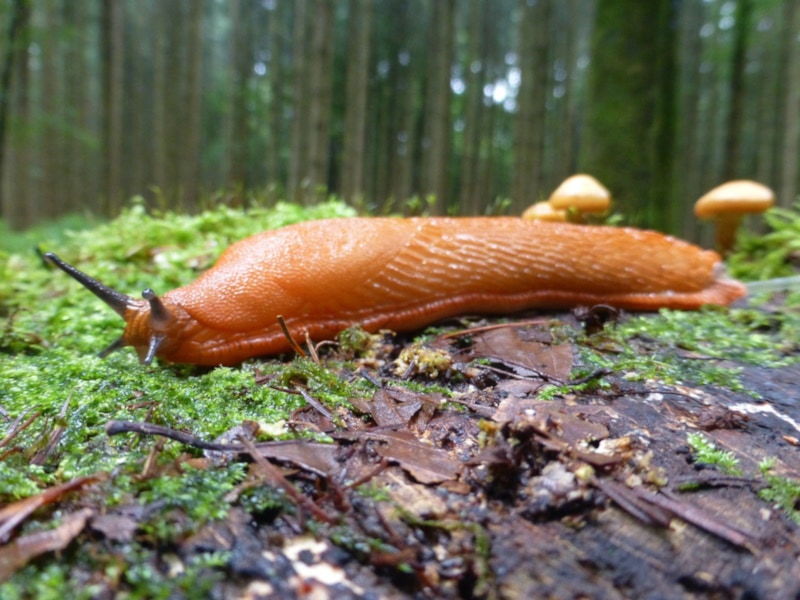
Why Do Dogs Eat Slugs?
Dogs usually consume slugs by mistake and rarely out of pleasure because the mucus that slugs secrete is unpleasant for their taste buds. If you have not seen your dog with a slug in their mouth, it is difficult to know whether your pet has eaten one.
However, there are a few signs that can indicate that this happened:
- Vomiting
- Fatigue
- Strange behavior (your dog moving their tongue or mouth oddly)
- Mucus around their mouth
- Slug pieces or mucus next to your dog
What Can Happen If My Dog Eats a Slug?
Although they may seem harmless, slugs can cause severe health problems for your dog if they are ingested or if your pet licks the mucus of a slug. Here’s what can happen.
1. Gastrointestinal Disorders
Once ingested, slugs can cause stomach pain, vomiting, and/or diarrhea in dogs.
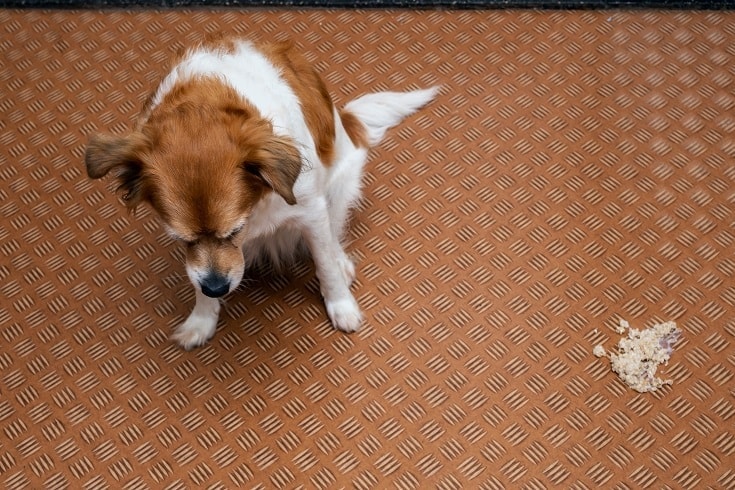
2. Lungworm Infection
Lungworm infection is mild if the affected dog is treated immediately. Otherwise, they can die.
Lungworms are nematodes that settle in the heart and the major blood vessels to the lungs. A dog becomes infested with lungworms when they eat slugs that contain the larvae. Dogs can also become infested when they lick a toy or their fur on which lungworm larvae are living. Even humans can become infested with lungworms if they accidentally ingest an infested slug or eat unwashed leafy vegetables that have been contaminated with slug mucus.
Once in the body, the larvae turn into adults and migrate to the heart and lungs through the blood vessels. This can cause heart and breathing problems, along with pneumonia. If it’s mild enough, the infection may not be noticeable.
After nearly 1 month, the adult lungworms begin to produce eggs that travel through the blood to the lung tissue and hatch into larvae (stage one, or L1). At this stage, the affected dog may have severe health problems.
The L1 larvae migrate to the pulmonary alveoli, which causes the dog to cough and swallow them. Once they reach the digestive tract, they are eliminated through feces, and the intermediate hosts (slugs, snails, frogs, and birds) will eat them, and the life cycle will continue.
- Coughing
- Respiratory problems
- Reluctance to exercise
- Fatigue
- Frequent bruising
- Prolonged bleeding
- Abnormal blood coagulation
- Weight loss
Lungworms can cause bleeding in the lungs, eyes, intestine, spinal cord, and liver, as well as in other parts of the body. Death can also occur in severe cases.
3. Food Poisoning and Salmonella Infection
Slugs like to eat rotten materials, including carcasses and rotten plants. So, along with a slug, your dog will also eat its stomach contents and can become poisoned or infected with Salmonella, which can lead to severe gastrointestinal problems.

4. Poisoning with Slug and Snail Baits
Poisoning with slug and snail baits is a severe consequence of ingesting these gastropods. Unfortunately, it is almost impossible to tell if the slug that your dog ate had previously ingested poisonous substances (such as metaldehyde).
Clinical signs of poisoning with slug and snail bait may include:
- Excessive salivation
- Difficulty in breathing
- Unusual breathing
- Unusual heart rhythm
- Neurological dysfunction
- Gastrointestinal distress
- Fever
- Cyanosis (bluish mucous membranes)
If your dog shows these clinical signs or you saw them eating a slug or snail, call the vet as soon as possible.
What to Do If Your Dog Eats or Licks a Slug
There is not much that you can do for your pet if they eat a slug. First, brush their teeth and wash their mouth. Second and most importantly, call the vet. If your dog ate a slug that had ingested toxic substances, it will be seen in your pet’s blood tests. Therefore, expect your veterinarian to recommend these.
In addition, the vet may recommend deworming. You must also monitor your dog for any signs of illness or changes in their behavior.
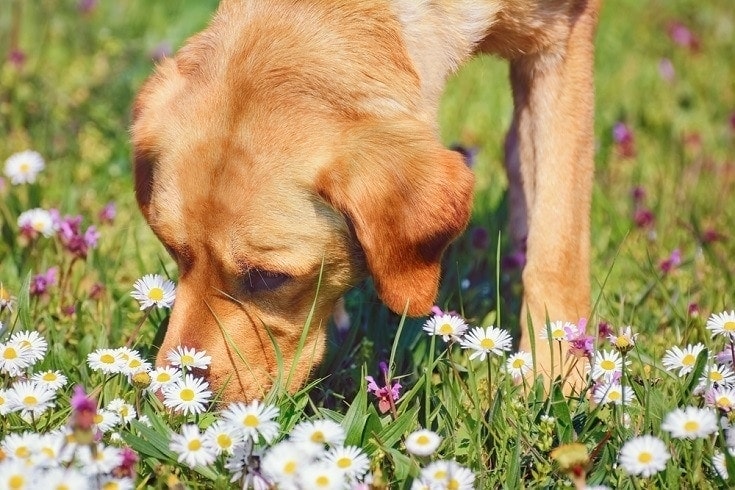
Frequently Asked Questions (FAQ)
Are Slugs Poisonous to Dogs?
Slugs are not poisonous to dogs in general. They can become poisonous if they have previously ingested slug and snail bait. These baits contain toxic substances (such as metaldehyde), which can poison your dog and lead to severe clinical signs and even death. So, if your dog has eaten a slug, monitor them for signs of illness and contact the vet immediately.
Are Garden Snails Poisonous to Dogs?
As in the case of slugs, garden snails are not inherently toxic to dogs, but they can become so if they have previously ingested slug and snail bait. Also, snails, slugs, and even frogs are intermediate hosts for lungworms, which can lead to severe clinical signs and even death if your infested dog is not treated in time. For these reasons, it is vital to take your pet to the vet if they have eaten snails or slugs.
Conclusion
If your dog has eaten a slug, it can be a cause for concern. Slugs are not naturally toxic to dogs, but they can be infested with lungworm larvae, or your dog can get poisoned with metaldehyde, a toxic chemical found in snail and slug baits. Your dog can also become infected with lungworms if they lick slug mucus or drink and eat contaminated water and plants.
However, even if the slug is not infected with parasites or contains metaldehyde, it can still cause gastrointestinal problems. So, if you see that your dog ate a slug or licked its mucus, contact the veterinarian immediately.
Related Reads:
- My Dog Ate a Squirrel: Should I Be Worried? Our Vet Takes a Look
- Are Snails Poisonous to Dogs? Vet Approved Health & Safety Facts
Featured Image Credit: Schwoaze, Pixabay

